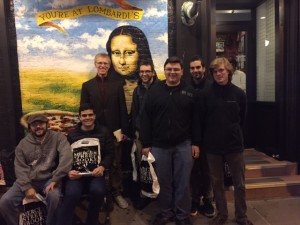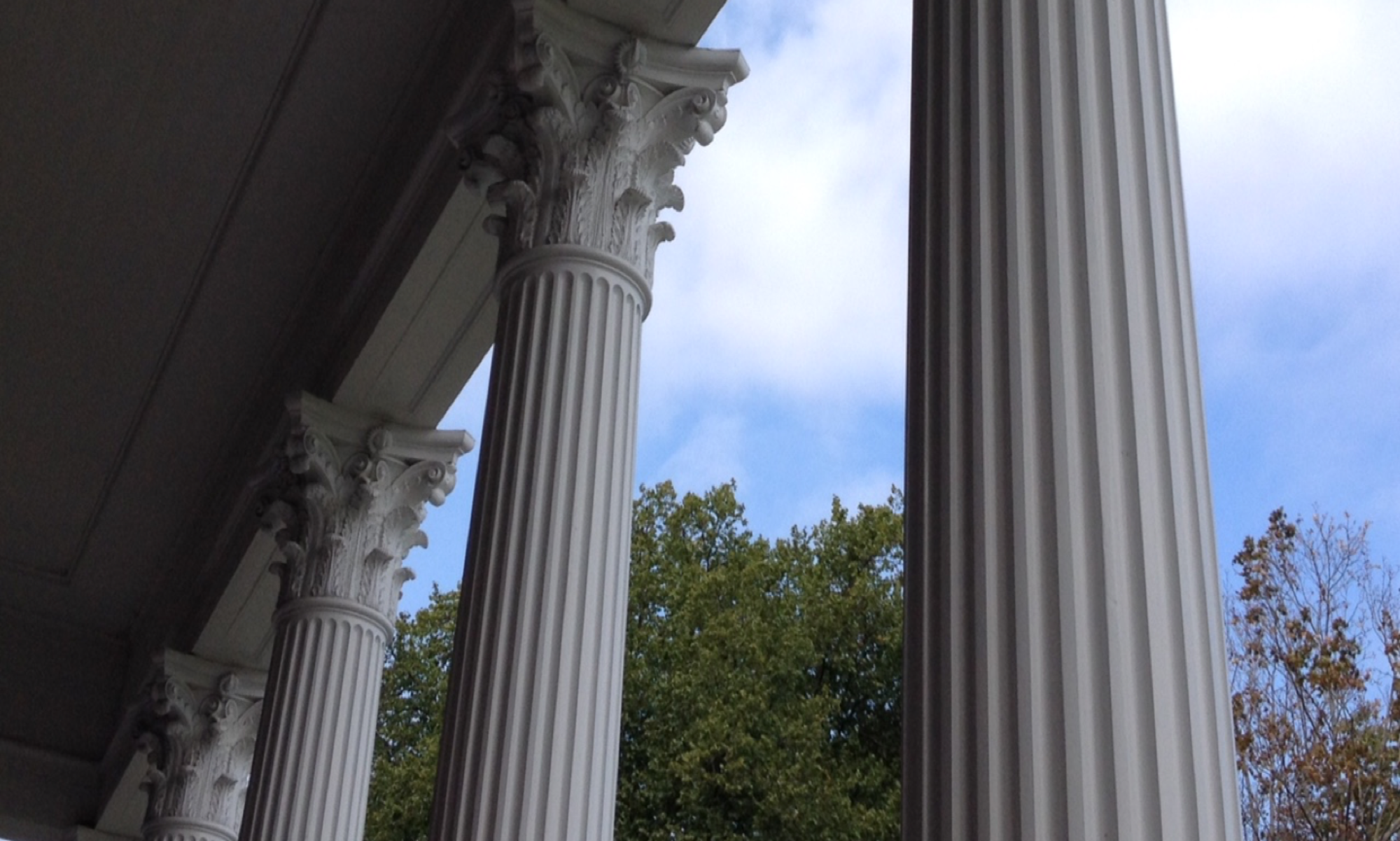By Corey Scannell ‘18
On Saturday, August 14, Professor Ellen Perry’s Roman Comedy class, along with a few erudite guests from the Department, made its way to New York City to see a performance of Shakespeare’s Comedy of Errors. Throughout the semester, the Roman Comedy class has been reading Plautus’ Menaechmi, from which Shakespeare drew inspiration for his comedy. In both the Menaechmi and the Comedy of Errors, the narrative focuses on twins who were separated at birth and reunited as adults, amid much laughter and confusion. Although we would have loved to see a live performance of the Menaechmi, the Comedy of Errors proved to be the next best thing – plus, it’s always rewarding to see the Classical world’s influences in today’s culture.

After a four-hour van ride to Lafayette Street in Greenwich Village, the RomCom class and co. packed into The Public Theater’s small performance hall at around two o’clock. From the start of the play, it was clear we weren’t in for a traditional interpretation of Shakespeare: within five minutes we saw border patrol police, college sports caps, and even a Donald Trump mask. The Public Mobile Theater Unit prides itself on making Shakespeare accessible to anyone. Because of this, their interpretation shirks much of Shakespeare’s highbrow humor, so as to accommodate easy comprehension and laughs galore.
The ninety-minute performance wasn’t all slapstick, though. A cast of only seven actors played sixteen roles, creatively and skillfully making the most of limited stage props, including an ingenious use of hats to distinguish characters. Sound effects were performed live, sexual innuendos were extravagantly stressed, and audience members played a surprisingly large role in a play that felt perhaps a bit more Roman that Shakespearean, after all.
Following the play, everyone had a few hours to split up and explore New York City. Some visited friends, others family, and a large team of us went to find dinner. Of course, we stumbled into a bookstore and decimated its Classics section on the way (first things first), but soon found America’s oldest pizzeria, Lombardi’s in Little Italy. The pizza was great, company better, and the day a success.
Fittingly, the marks of old and new pervaded our entire trip: in an effort to witness the vestiges of antiquity, we went to watch a sixteenth-century play that happened to incorporate more markings of modernity than anything else. Plautus’ Epidamnian merchant at one moment can be Shakespeare’s Duke of Ephesus at another, before becoming a satirical Donald Trump near the U.S.-Mexico border today. Our trip served as a reminder of just how relevant our subject is: though Classical influences change and adapt, they never really disappear.


